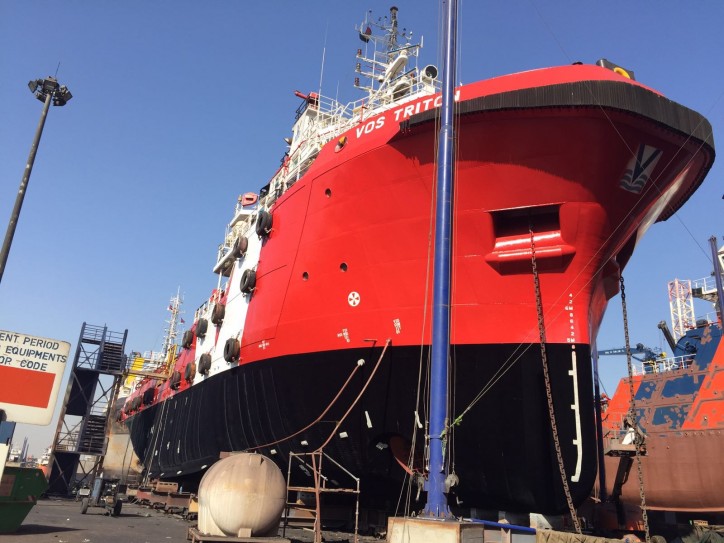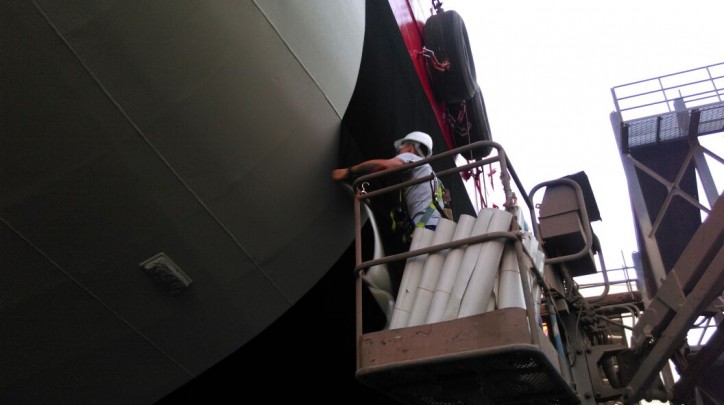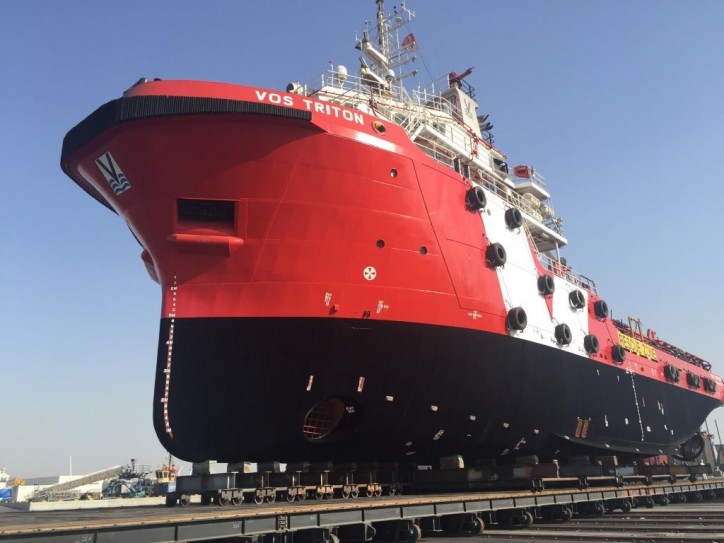Vroon Offshore Services Pte. Ltd. has an excellent reputation for ensuring all its vessels comply with the highest safety and reliability standards, while at the same time being a pioneer of new technologies that will improve vessel performance and guarantee complete customer satisfaction. One of the Company’s goals is the optimisation of fuel consumption, a challenge in an industry where vessels are often static or sailing at low speed. To assist in achieving this goal, Vroon has chosen Micanti to supply antifouling film for its anchor-handling tug-supply (AHTS) vessel, VOS Triton.

Offshore Tug/Supply Ship VOS Triton - Image courtesy: Vroon
Micanti Antifouling is recognised for its good performance, even when vessels are moored or sailing at low speed. The fact that the product is 100% environmentally friendly is an additional incentive for Vroon Offshore Services (VOS).
Micanti has recently increased its focus on the Singapore market, introducing its revolutionary antifouling film to the Asian offshore world. Micanti is convinced that many opportunities lie ahead for this film, which prevents marine growth in a physical manner and is not dependent on vessel movement. Optimum performance is also guaranteed during a period of extended vessel inactivity. Being selected as a Vroon supplier, gives Micanti the opportunity to clearly assess the actual fuel savings for offshore vessels, as Vroon closely monitors fuel consumption.

Nylon fibres prevent marine growth on ships
“In all of Vroon’s vessel operations, marine growth results in increased fuel consumption. Despite using high-quality antifouling coatings, we continue to face issues with marine growth“, stated VOS Singapore Managing Director, Filip Olde Bijvank. “At Group level, we have decided to start using Micanti Antifouling in the most severe conditions - offshore vessels operational in tropical water, but encountering long idle times. Although Micanti is new to the market, the proof they have demonstrated about their product in these circumstances makes us confident that this is the right way to go.”

Offshore Tug/Supply Ship VOS Triton - Image courtesy: Vroon
Turning a challenging market into a great opportunity
“As the prices of oil are low and many offshore projects are put on hold, vessel maintenance is often decreased to a minimum”, Micanti’s Managing Director Rik Breur explains. “Luckily, companies like Vroon still keep the right level of maintenance to make sure the operational availability for clients is guaranteed. These companies need to have an antifouling that works in all conditions. We have shown in Europe and the Middle East that we are able to fulfil this need and, as such, the current market where long idle times are common gives us a competitive advantage over regular antifouling paints. We are confident that we will provide Vroon the operational benefits and low fuel consumption they are looking for.”
Improving working conditions and reducing chemical waste
Breur states: “When painting a vessel, half the paint evaporates as greenhouse gas. Moreover, painters need to wear additional personal protection equipment during application. Micanti Antifouling is as simple as applying a sticker and no solvents are evaporated. After use the material can be discarded as regular household waste. This in contrast to traditional paint, which is chemical waste and both difficult and expensive to dispose of.” These benefits make the product extremely suitable in Singapore, where disposal of chemical waste is a time-consuming and expensive process for local shipyards.
Source: Vroon